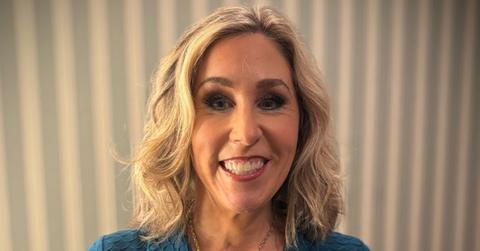Pamela Paul Left the New York Times as Part of a Wave of Opinion Section Cuts
Pamela Paul left the New York Times as part of a broader set of Opinion page changes.
Published April 3 2025, 11:22 a.m. ET
After working as the paper's public editor and then as one of its opinion columnists, Pamela Paul's tenure with The New York Times has come to an end. Following the news of her departure from the Times, many wanted to know more about why she left and her tenure with the paper.
Throughout her career, Pamela has been unafraid to buck liberal orthodoxy on a wide range of questions, making her one of the more controversial columnists employed by the Times. Here's what we know about why she left.
Why did Pamela Paul leave The New York Times?
It seems like Pamela lost her job because of a broader restructuring of the Opinion section at the Times. The news of her ouster came shortly after Paul Krugman announced that he would be leaving the paper, although he seems to have made that decision because of restrictions that were imposed on him by his editors. Kathleen Kingsbury, the Opinion editor at the paper, told New York Magazine that the decision to part with Pamela had nothing to do with her ideological views.
"We don’t discuss personnel matters, but any insinuation I make staffing or editorial decisions based solely on political viewpoints is false," she said.
There are plenty, though, both inside of The New York Times and in the broader ecosystem of journalism, who found Pamela's positions on a range of issues to be not just controversial but also intellectually lazy and reflexively contrarian.
She has written columns defending J.K. Rowling (trans rights in general seems to be a particular favorite topic), and she also went after the American Historical Society for condemning the "scholasticide" in Gaza. According to New York Magazine, Pamela was not exactly popular with her colleagues.
“It is a rarity inside the Times for someone to manage to make enemies on every desk they touch; Pamela is indeed a rarity,” one employee said.
“She should have spent time making allies if she was going to be as divisive a figure as she was internally. But she didn’t put the time in there, or at least did not have the interest," this employee continued.
Whether Pamela's personal unpopularity with other members of the Times staff was connected to her ouster is unclear, but it seems like there were plenty of reasons that people wanted her out the door.
Pamela's willingness to defend controversial people or ideas might have made her seem like an iconoclast, but an Opinion columnist's job is not just to be thought-provoking. Andrea Long Chu's thorough takedown of Pamela in New York Magazine gets at many of the reasons that her critics found her frustrating.
She was willing to poke her those with whom she purportedly agreed, believing that centrism was a good in and of itself. While that may have some value, there are plenty of critics who think there was something hollow at its core, a belief that the middle-most position must also be the correct one, whatever that position might be.

